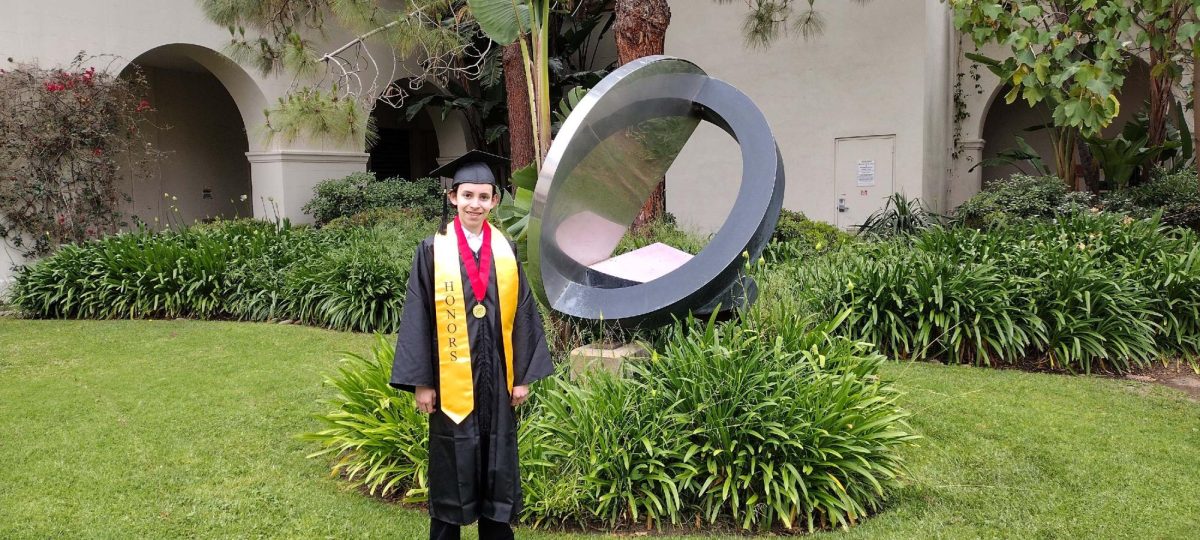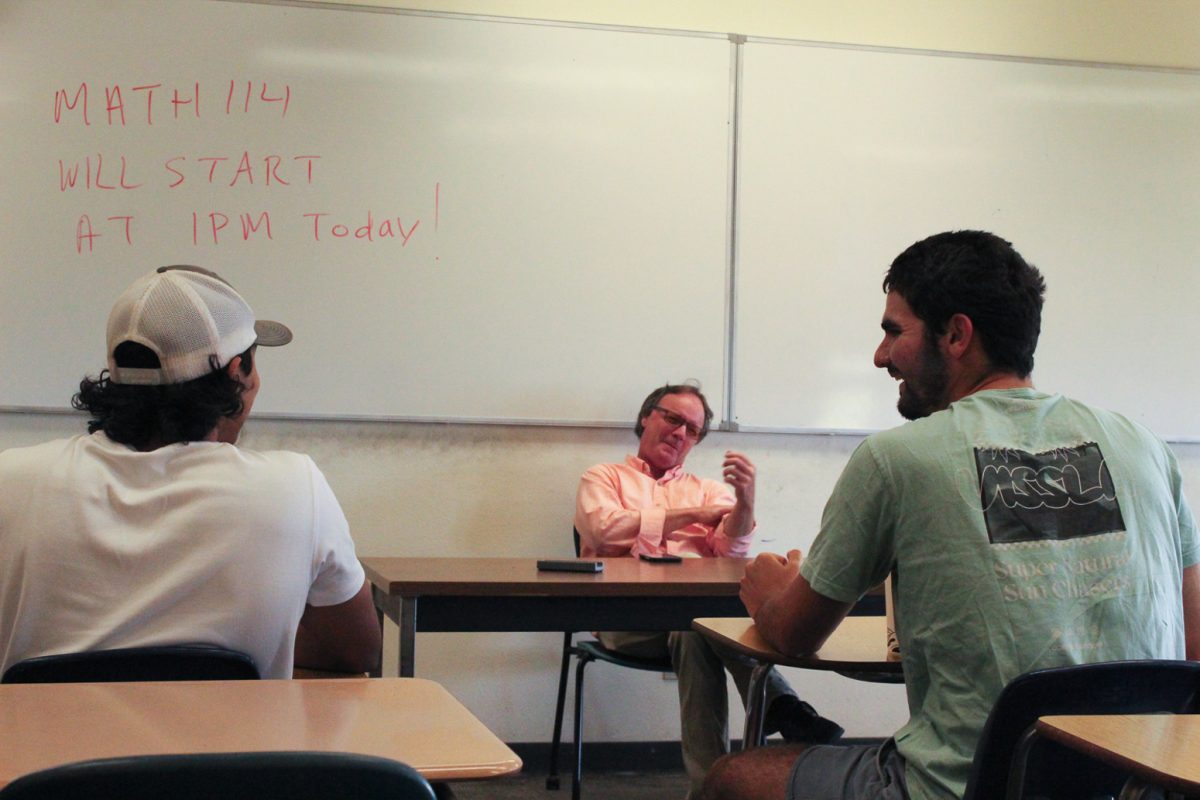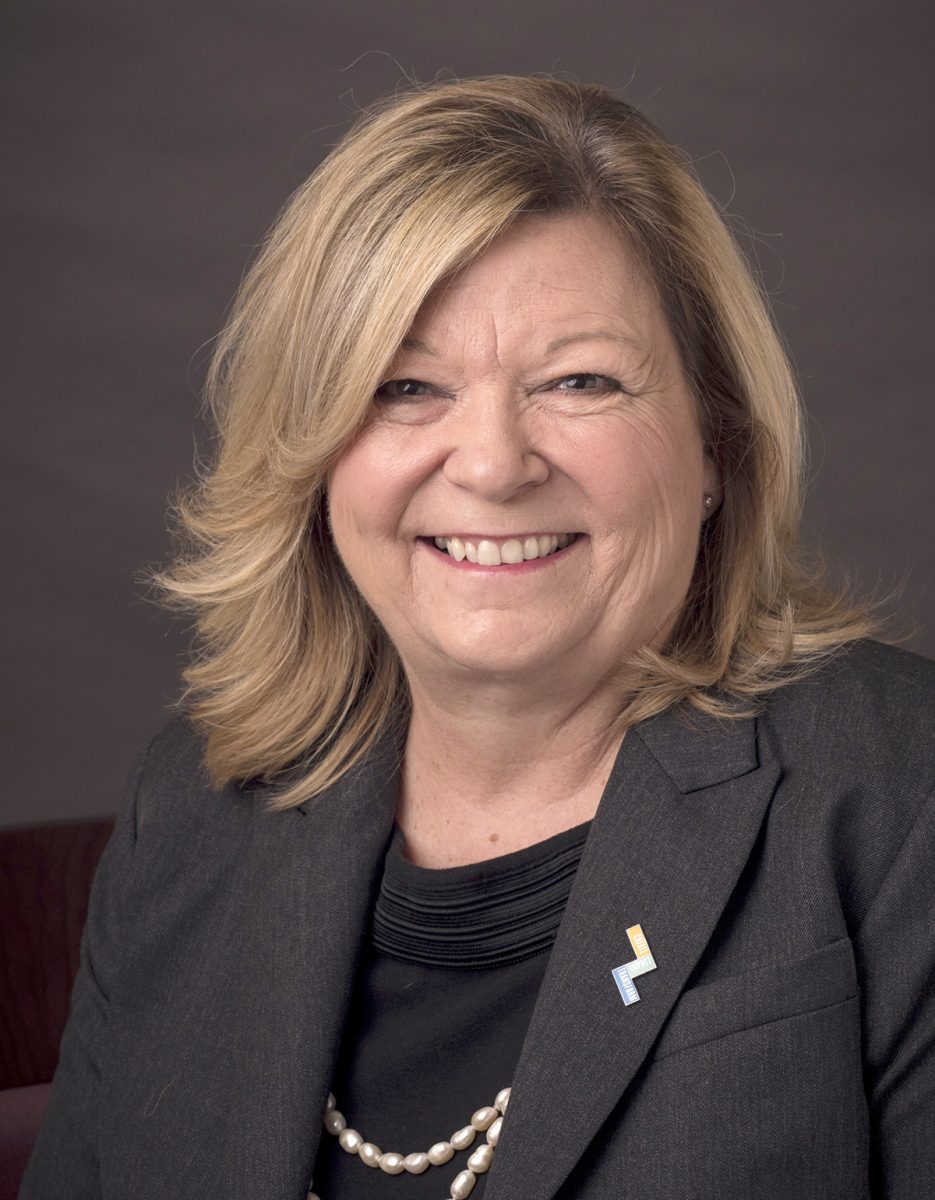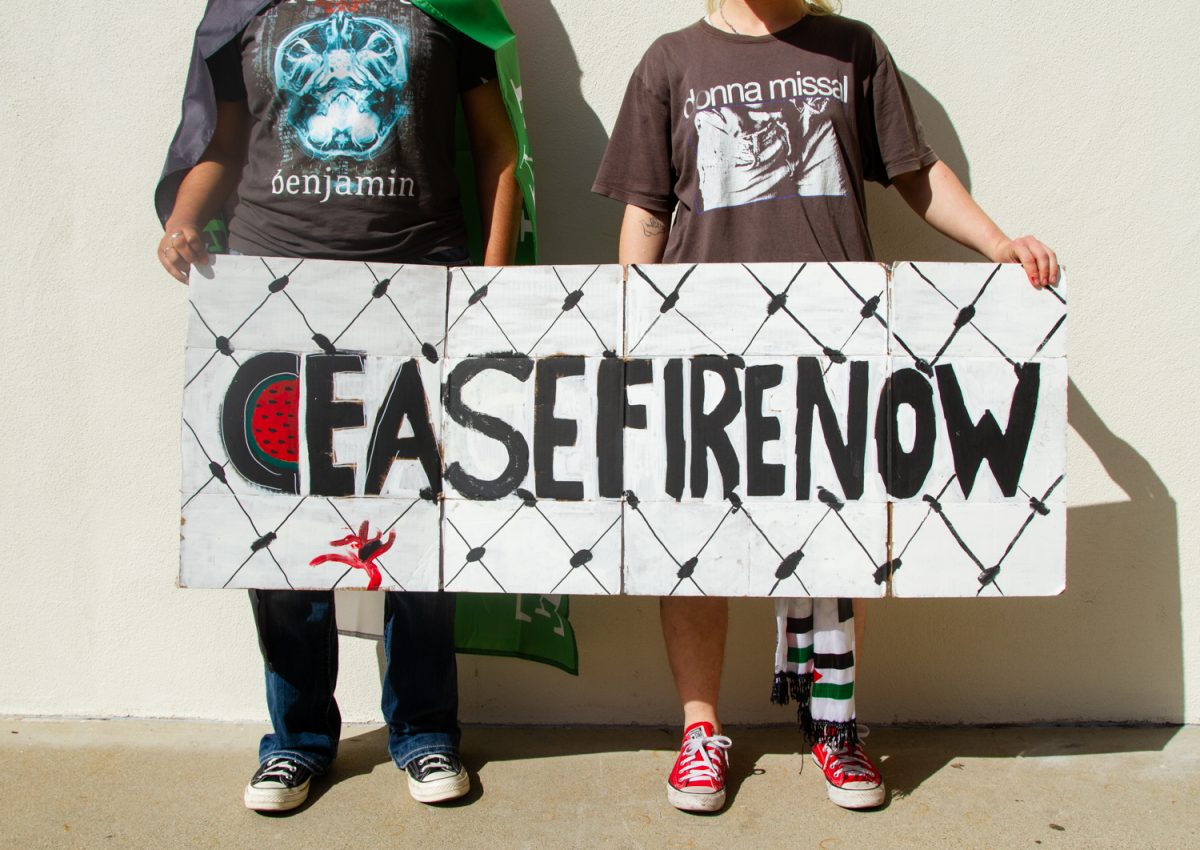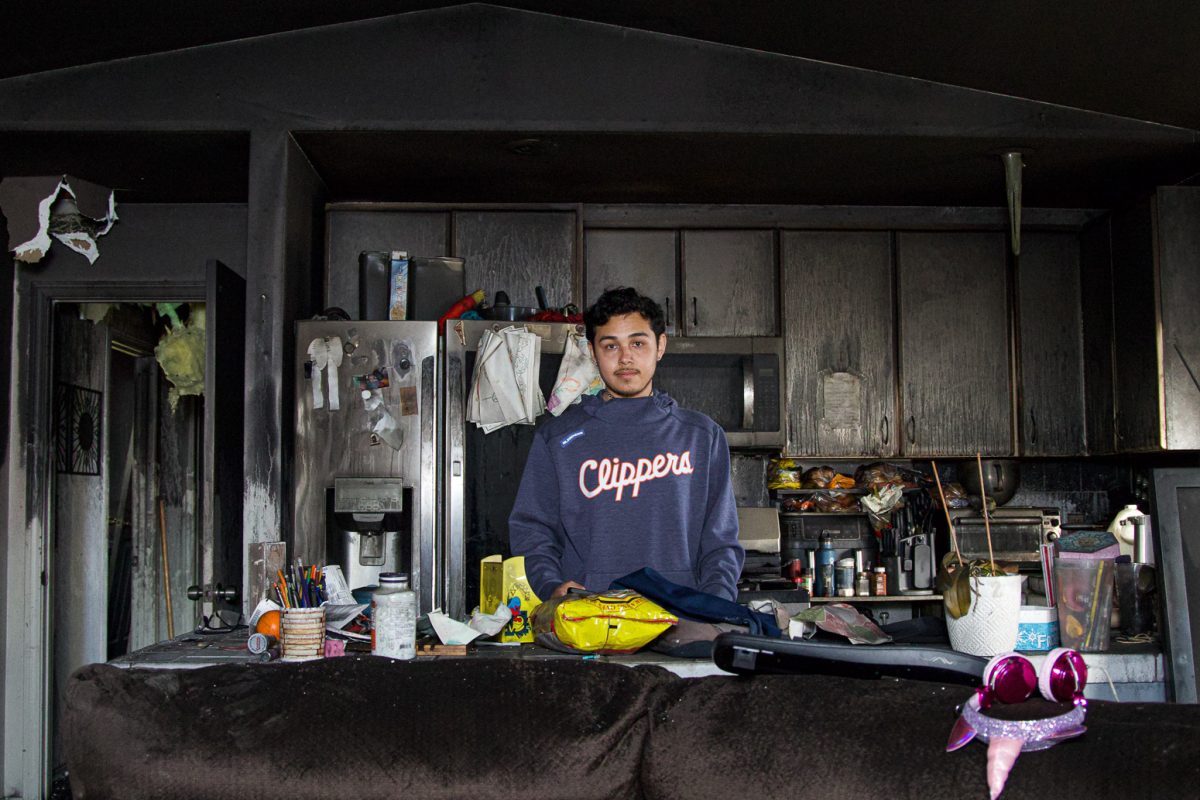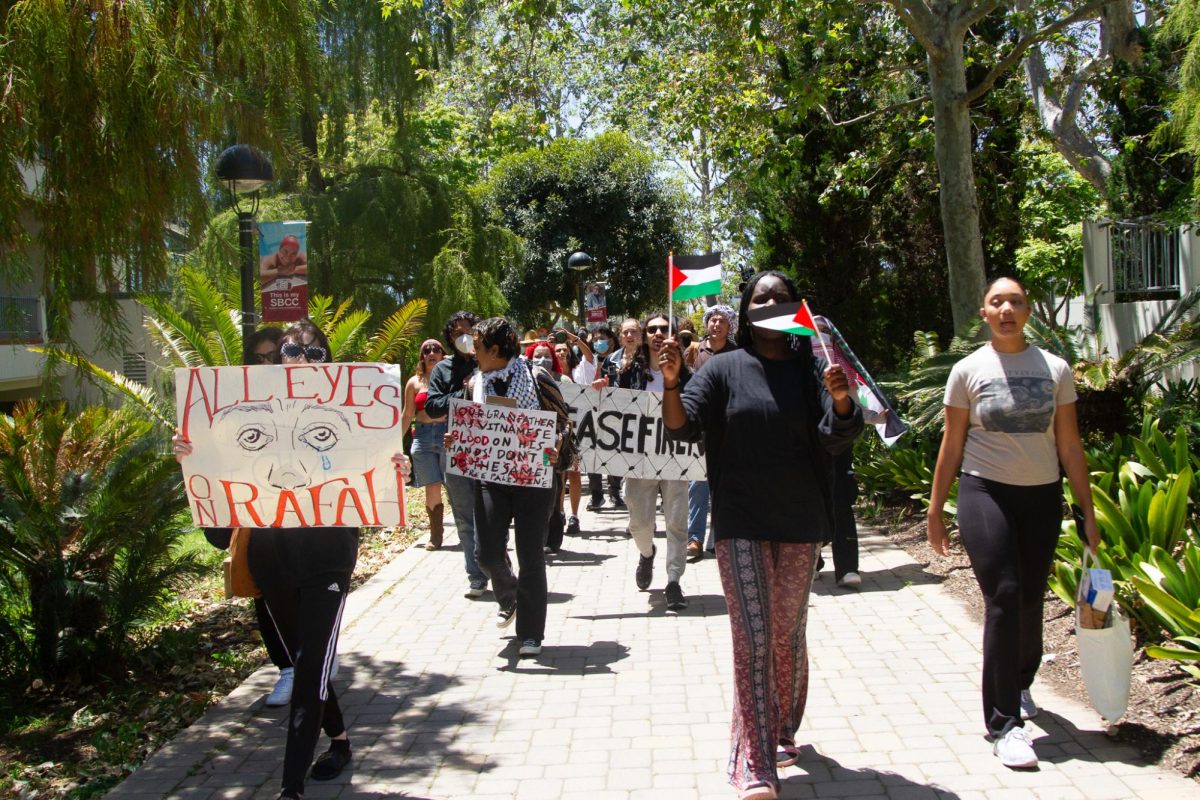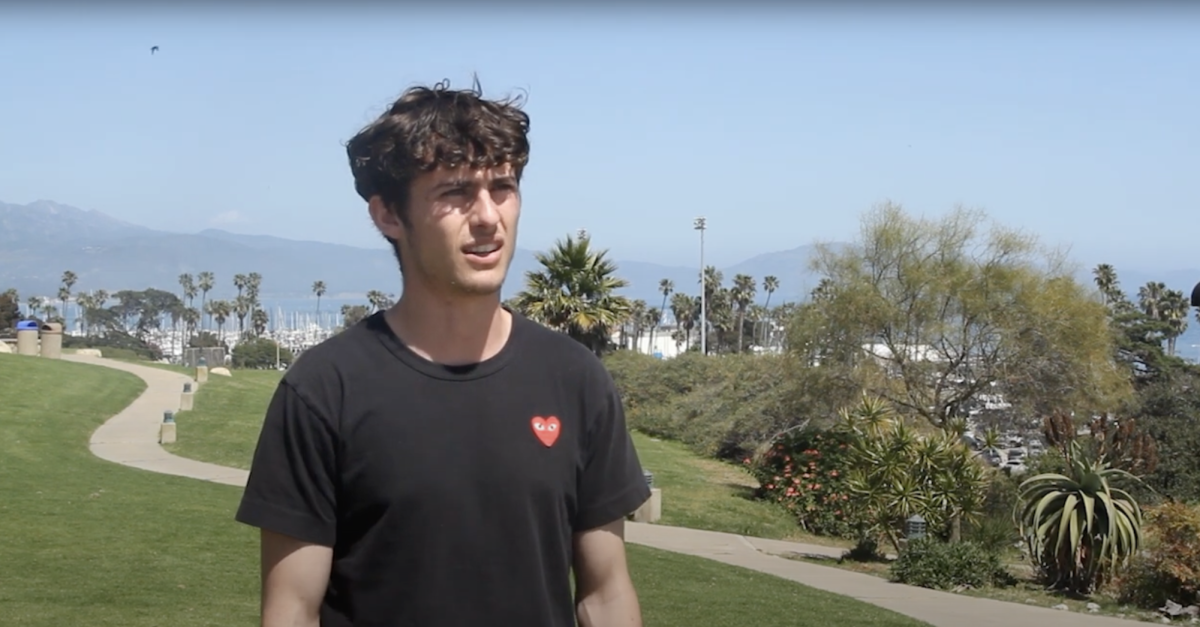Only one month before graduating from City College, Mariam Martinez Gama, a third-year English major, has been waking up feeling “relaxed, grateful, and joyful” after being accepted to all the schools she applied to.
Hoping to end up in either San Francisco or Berkeley, Gama knows she wants to continue her undergraduate years in the Bay Area after growing up in Buellton.
Gama’s limited proficiency in English posed various challenges throughout her school life. From kindergarten to Santa Ynez High School, she experienced alienation and isolation from students due to her first language being Spanish.
Gama describes her high school career as brutal, getting into fights and being suspended often. As a queer student, she also fell victim to a lot of bullying.
“I was not the perfect student, but I managed to get through it, and I think that’s the beauty of my educational journey,” Gama said. “Regardless of the labels that were put on me, like a troubled kid’ and ‘English development student,’ I still managed to find my voice through the education system.”
Raised by a single father after her mother’s death when she was very young, it was up to Gama and her seven siblings to raise themselves, as her father worked as a semi-truck driver, oftentimes being absent from home.
Not having the best relationship with her father changed the trajectory of her household. Gama’s oldest sister, Margery, despite only being eight years older than Gama, had full responsibility for all eight of them, which secured a special place in her heart.
“My family life was broken, but there was also beauty in being raised by my siblings because we had that bond, that shared pain,” Gama said. “We were able to talk about things in regards to loss. Some of us choose not to talk about it, others choose to talk about it, and I think that’s where the beauty comes, is understanding family shows up differently.”
As the middle child and fourth in the family, Gama left high school at the peak of COVID-19, which decreased her motivation to pursue a college education.
After failing a rigorous calculus class, Gama still decided to attend college away from home. She enrolled in City College in the fall of 2021.
It was a hard transition as she started to explore her gender and ways of expression while having a small social bubble, but she came to the conclusion of being a trans woman after reading a lot of literature.
“That transition is a whole other transition,” Gama shared. “Socially, it’s a different transition; medically, it’s a different transition. Trying to convince others that this is who I am, like with my family, telling them that this is how I’ve always been, was difficult.”
Gama continued to search for a safe space but didn’t involve herself on campus until her second year after getting a job at the Center for Equity and Social Justice (CESJ). However, despite loving the staff and students, she felt lonely and isolated due to her own personal battles.
A year later, she found the Extended Opportunity Program and Services (EOPS). Despite not having resources directly for trans people, she has been able to express herself by finding her own family on campus after losing connection with her siblings and father, and gaining help for her life and academic goals.
“Everyone there, they all have a very special, unique role,” Gama said with a smile. “They all have different strengths. For example, me and the viejas all have our own little love circle. We call ourselves the viejas, the women here, because it’s empowering for us.”
Among her makeshift group are Academic Counselor Ana Garcia, deemed “the good bully,” and Student Program Advisor Chelsea Lancaster, “the advocator.” Gama shared that they have all pushed her to do whatever is good for her and encouraged her to take more risks.
Now, still deciding where to continue her college education, Gama hopes to be in New York City in five years, with a plan to express her two identities as a Chicana and a trans woman, drawing strengths from her ancestors in both communities.
“The trans history is so brutal,” Gama said. “They never got a chance to be able to create, and I want to be able to use their sacrifice to gain civil rights and equal protections to build our advocacy. I’m really hoping to use both of my identities as a Chicana and a trans woman to change the future.”
Gama’s love for writing started during her transition from sophomore to junior year of high school. She first applied to schools during her senior year as a chemistry major.
According to Gama, her struggle with English as a child caused her to struggle with finding a love for reading and writing. After finishing her first book, however, she recalls it as “art on paper,” she felt seen when she read about the experience of being misunderstood time and time again.
“I was destined to not be able to speak the language,” Gama said. “To just conform into what mainstream society believes is right for young Chicano children. I’m very blessed to have met the people who have encouraged me to keep writing.”
For her motivation, Gama enjoys attending open mics on campus, believing the poets at City College, like Miguel Cruz from the Basic Needs Center, teach her that the things that matter are individual experiences.
Sharing her own individualism, Gama has spoken at Raíces events on campus.
“When we don’t acknowledge the beauty of trans joy and trans art and trans articulation, we ignore a whole world of possibility. And I think I wanted to share that with the school and commencement,” Gama said.
Speaking at the 2024 graduation ceremony, Gama wants to leave her mark on campus and hopefully inspire someone to leave their own mark through her speech, which will be delivered through poetry – a format she believes will be a change from the traditional graduation speech every year.
“I get to grieve in that moment,” Gama said. “I get to let go and feel all of the stuff that I have been through to get to this point. “I think that’s the beauty of celebration that we tend to ignore; is that, within [the] celebration, we grieve, and we feel joy and I think that acknowledging that is so beautiful.”





